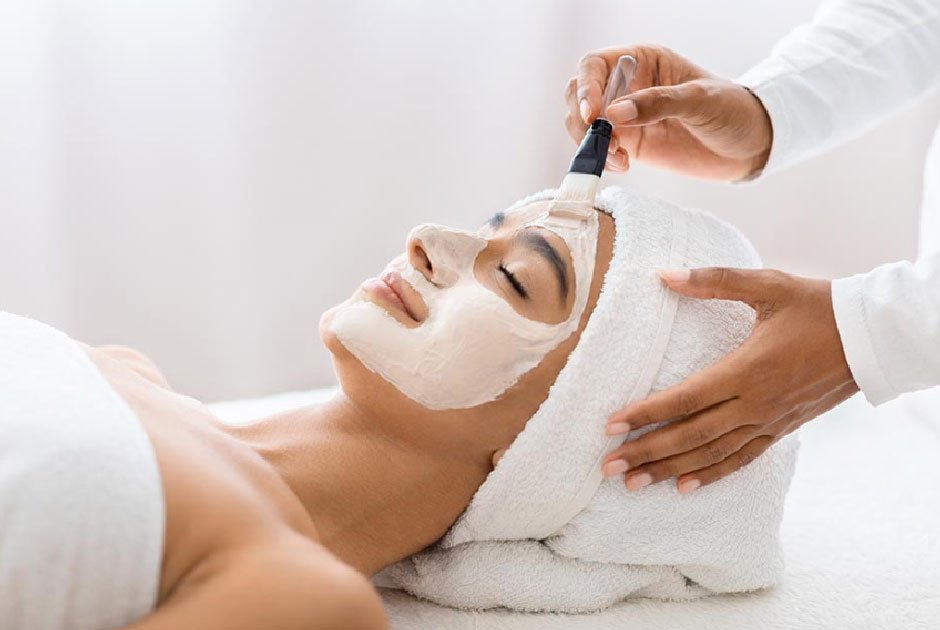Skip to the good bit
ToggleA thriving career in the beauty and wellness industry begins with a solid foundation of education and training. Esthetician school is integral to building this foundation, offering aspiring beauty professionals the knowledge and skills needed to excel in a competitive field. These programs are designed to produce skilled estheticians ready to meet clients’ diverse needs and adapt to the ever-evolving beauty landscape.
By immersing students in a comprehensive curriculum that includes theoretical learning, practical experience, and client management, esthetician schools prepare graduates for a successful career in beauty and wellness.
Comprehensive Curriculum
At the heart of esthetician school is a comprehensive curriculum covering the essential skincare aspects. Students delve into skin anatomy and physiology, learning about different skin types and conditions. This foundational knowledge is crucial for selecting appropriate treatments and products for clients. The curriculum also includes essential topics such as sanitation protocols, vital for maintaining hygiene and safety standards in any beauty practice. Mastering these core subjects gives students the critical thinking skills to assess client needs and develop personalized care regimens.
Hands-on Training
One of the defining features of esthetician education is its emphasis on hands-on training. Students gain practical experience by practicing various techniques on mannequins and, eventually, real clients under supervision. This practical approach allows students to apply their theoretical knowledge and refine their skills in a controlled environment.
Techniques such as facials, microdermabrasion, waxing, and more are covered, preparing students to offer various services upon graduation. The experience gained during this immersive training phase instills confidence and precision, ensuring that future estheticians are prepared to deliver high-quality services in the real world.
Learning About Products and Tools
Esthetician school introduces students to the vast array of products and tools they will encounter in their careers. Understanding the ingredients and formulations of skin care products is crucial for recommending safe and effective treatments.
Students also gain familiarity with the latest tools and technology used in skincare, such as electronic exfoliation devices and specialized facial equipment. This exposure ensures that graduates are well-versed in traditional techniques and prepared to integrate the latest innovations into their practice as the industry evolves.
Client Interaction and Management
Beyond technical skills, successful estheticians must possess strong interpersonal abilities to manage client relationships effectively. Esthetician school helps students develop these soft skills by teaching them to conduct thorough consultations, listen actively to client concerns, and communicate treatment plans.
Building trust and rapport with clients is essential in the beauty industry, where customer satisfaction often hinges on the quality of the overall experience. Training in client interaction empowers students to provide a welcoming and professional atmosphere that keeps clients returning for repeat services.
Industry Standards and Licensing
Understanding industry standards and obtaining the necessary licenses is crucial for aspiring estheticians. Esthetician school prepares students to meet these requirements by covering the ethical and legal aspects of the beauty industry. Programs guide state licensing examinations and ensure graduates are well-prepared to demonstrate their knowledge and skills during certification assessments. By familiarizing students with the legal responsibilities of practicing estheticians, schools help ensure that graduates uphold the highest standards of professionalism and integrity in their work.
Career Possibilities
Completing esthetician school opens many career opportunities in the beauty and wellness industry. Graduates can pursue roles in salons, spas, resorts, and wellness centers. Additionally, there are opportunities in medical esthetics, working alongside dermatologists and cosmetic surgeons to provide complementary skincare treatments. Ambitious estheticians with entrepreneurial spirits may open their own practices or product lines. The versatility of an esthetician education enables graduates to explore diverse paths and find niches that align with their passions and career goals.
Networking and Professional Development
Esthetician schools often provide valuable networking opportunities that can be instrumental in launching a successful career. Students can connect with industry professionals through career fairs, workshops, and guest lectures. Building a strong professional network can lead to mentorship opportunities, job placements, and collaborations.
Furthermore, schools often emphasize the importance of continuous professional development, encouraging graduates to stay informed of the latest trends and advancements through continued education and certifications. This commitment to lifelong learning ensures that estheticians remain competitive and adaptable in a dynamic industry.
Conclusion
Esthetician school is more than just an educational stepping stone; it’s a gateway to a fulfilling career in the beauty and wellness sector. Through a meticulous blend of theoretical knowledge, practical training, and client interaction skills, these programs prepare students to excel in various professional environments. When graduates leave school, they are equipped with the technical expertise, confidence, and competencies needed to build successful, lasting careers. As the industry continues to grow, the demand for skilled estheticians increases, making this an opportune time for individuals to embark on this rewarding journey.







